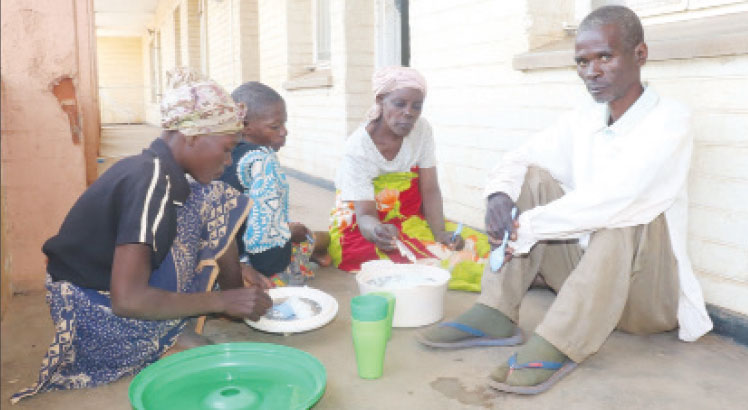View points on abortion
The term abortion has a latin etymology aborior, that means miscarry, be aborted, pass away, disappear, be lost or set (in case of a sun, star or planet). As definition, it refers to removal of a foetus from the mother’s womb into an environment in which it cannot survive. Abortion is direct when the ejection or destruction of the foetus is intended, for instance, carrying out an abortion to save reputation of being an unwed mother. It is indirect if death of a foetus is merely permitted as a concomitant effect of a directly willed end, for example, death of a foetus caused by removal of a cancerous uterus of its mother.
What they tell us about abortion

For many nations that legalised abortion as well as those trying to legalise it, it is a way out of different kinds of complications and dilemmas. Here are some of their reasons.
l Due to increasing number of “unsafe abortions” carried out in secrecy, there is a need to legalise abortion and make it “safe”;
lA foetus is not a human being but merely part of a mother’s body can be removed like any other physical organ that becomes problematic. Moreover, a woman has a right to her body;
lAbortion should be allowed if pregnancy is due to rape, incest or adultery. The child is considered a burden forced upon the mother against her will. To force her to carry a rapist’s child is to inflict yet another injustice on her.
l It should be allowed in case of great probability that the expected offspring will be affected with serious defects;
l Abortion is permissible if life of a mother is endangered by the pregnancy or a woman is abandoned by a man responsible for pregnancy.
What they don’t tell us about abortion
lAbortion is an immoral act;
lCalling abortion “safe” or “unsafe” does not change the fact that it is about killing of unborn babies. Abortion cannot be “safe”: no immoral act is safe for any society and abortion is “not safe” for unborn babies;
lA foetus is a human being. A foetus is a prenatal human being between the embryonic stage and birth. Life of a human being starts at conception. From this early stage a human being must be recognised as having all rights including right to life.“Every person has the right to life and no person shall be arbitrarily deprived of his or her life” (the constitution of the Republic of Malawi Chapter 4, s. 16). A foetus is another human being in a process of growth. We can discuss abortion thanks to the fact of being surrounded by pro-life people who never interrupted our initial and yet critical process of growth;
lA foetus is not merely part of the mother’s body but another life inside her, a life that temporarily depends on her to fully develop and become independent. The fact that it is another life sets limits to what we can do with it. A foetus has right to life. A right that violates the right of another being is not a right but an act of violence;
lHierarchy of social values. The society that wilfully destroys human life will have no value left to protect for other values come second, third or fourth to highest value of human life. With this highest value compromised, moral decay and collapse of other social values are inevitable. We fall into relativism on which no society is built;
lChildren born of rape, incest and adultery remain innocent. Our societies have laws and ways of dealing with such cases without revenging on the innocent;
lIf the life of the mother is endangered, it is incumbent upon medical personnel and concerned parties to find a solution that is not automatically abortion.
What my church teaches on abortion
lThe church emphasises on the sanctity and dignity of human beings created in the image and resemblance of God (cf. Genesis 1:27). God is the author and master of life, this implies that a human being should not destroy human life at free will. It is sacred;
lVatican Council II also takes a very severe stand against abortion as it says, “Life must be protected with utmost care from the moment of conception, abortion and infanticide are abominable crimes” (cf. Gaudium et Spes no. 51);
lThe magisterium of the Catholic Church holds that killing of the innocent is immoral and forbidden under any circumstances whatsoever. One can never choose an immoral action as lesser evil, namely direct killing of foetus which is gravely contrary to the moral law unless it is indirectly willed, for example taking out the whole uterus as a sick organ together with the child;
lHoly Scriptures repeatedly condemn the crime of murder, the shedding of innocent blood and the murder of children by their parents (cf. Wisdom Ch. 12, 4-6). God has a plan for every human being: “Before I formed you in the womb I knew you, before you were born I consecrated you” (Jeremiah 1:5). And Jesus Christ came so that even the unborn babies might have life that is abundant (cf. John 10:10). “A voice is heard in Ramah, weeping and great mourning, Rachel weeping for her children and refusing to be comforted, because they are no more” (Matthew 2:18).
—The author is a Malawian Comboni Missionaries priest serving in Kenya.





